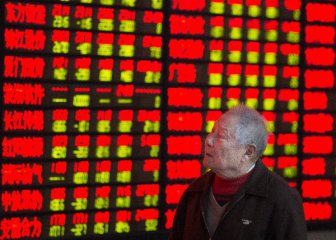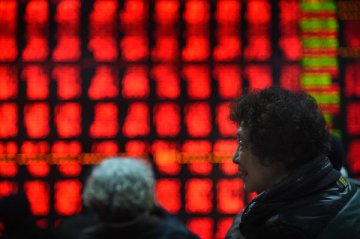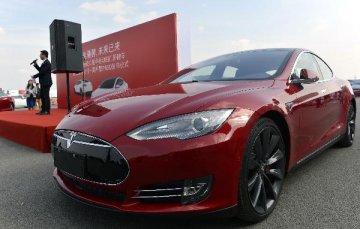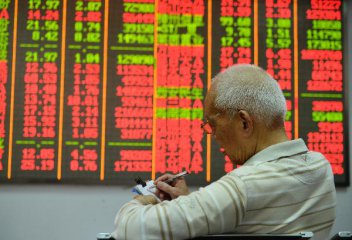Adelaide Brighton Ltd (ABC):
Australia's largest cement company, Adelaide Brighton, expects demand from the residential housing market to drop in 2019 although the slide is likely to be offset by solid demand from infrastructure projects where the company is pushing hard to lift its exposure further into airport, rail and road-building projects. New chief executive Nick Miller, who took the helm from long-serving boss Martin Brydon on January 30, said about 32 per cent of the company's end product exposure was to the residential construction sector and the full impact of a downturn in multistorey apartment construction wasn't likely to occur until 2020. Multi-residential projects make up about half of that 32 per cent component. He said a number of apartment tower projects, for which the company was supplying concrete and cement, were still in the early stages of construction and required large amounts of concrete still. "That build phase will continue," Mr Miller said.
Air New Zealand Ltd (AIZ):
Air New Zealand has trimmed its full year forecasts as fuel costs and slowing passenger numbers took a hit to its half-year earnings. The company posted earnings of $211 million for the six months to December, compared to $323m in the previous period, and net profit of $152m. It said operating revenue had increased by 7.1pc but that it was more than offset by a 28 per cent increase in fuel price and increased operational costs. Chief Christopher Luxon acknowledged the rate of growth in New Zealand was slowing to be more in-line with other developed markets, and said the airline would review its network, fleet and cost base. “While we continue to expect solid growth across our key markets including domestic New Zealand, we cannot ignore signals that the rate of growth has slowed somewhat from prior years,” he said. The company revised down its earnings for the full year to between $340m to $400m, assuming an average jet fuel of $US75 per barrel.
Austal Ltd (ASB):
Shipbuilder Austal has increased shareholder payout after announcing a two per cent lift in first-half profit on its expanding US Navy and commercial ferry work. Net profit for the six months to December 31 came in at $23.7 million and revenue was up 31 per cent to $851.5 million, with contracts for four more US Navy ships secured during the period. The company will pay an interim dividend of 3.0 cents per share, fully franked, up one cent from a year ago.
Australia and New Zealand Banking Group (ANZ):
ANZ has moved to a new management structure to better navigate the challenges facing the financial sector, while taking advantage of current market opportunities. The new structure will see current Australia retail and commercial banking executive Mark Hand share responsibility for the financial performance of the bank’s Australian business with Maile Carnegie, who will take on an expanded role as digital and Australia transformation executive. “The continued transformation of the Australia business to succeed and thrive in this new operating environment is both the biggest challenge and opportunity for ANZ,” chief executive Shayne Elliott said. Mr Elliott said that a single governance and accountability structure was no longer suitable, given the challenges facing the sector.
BHP Group Ltd (BHP):
BHP has made four appointments to its executive leadership team as it moves to transform and simplify its portfolio and as heavy hitters depart. Current chief commercial officer Arnoud Balhuizen is set to return to his home country of the Netherlands after 25 years with BHP, while Steve Pastor will exit following his leadership of the US onshore asset sale. In their place, Geraldine Slattery, formerly Asset President Conventional, will lead BHP’s petroleum business, including oil and gas interests and development and exploration programs in the US, Australia, Mexico and Canada. Meanwhile, Vandita Pant will take on the role of Chief Commercial Officer from July. Jonathan Price will assume the role of transformation director and Laura Tyler as chief geoscientist. “These management changes are an important step as we plan for the future of BHP. The elevation of geoscience and transformation to the Executive Leadership Team demonstrates the determination we have to advance the best science, technology and people to make our operations safer and more productive,” chief Andrew Mackenzie told the market. BHP shares last at $37.68.
Bingo Industries Ltd (BIN):
Waste management group Bingo Industries has gained the green light from the Australian Competition and Consumer Commission for the $578 million acquisition of the Dial-A-Dump business after agreeing to sell its Banksmeadow processing facility in outer Sydney to allay concerns by the regulator about competition in the collection of building and demolition waste. The ACCC approval will be a filip for Bingo, which stunned investors on February 18 when it cut profit forecasts by up to 20 per cent. ACCC chairman Rod Sims said the Dial-A-Dump transaction had raised "a number of significant concerns", largely centred on the building and demolition waste sector in the eastern suburbs and inner city suburbs of Sydney, but the sale of the Banksmeadow facility should be enough to maintain competition in that segment.
Freedom Insurance Group Ltd (FIG):
Troubled insurer Freedom Insurance Group Limited has kept its trading suspensed on as it says it is “in discussions with key stakeholders regarding its financial position”. Freedom is yet to lodge its half year results with its auditor not yet signing off on the document. Freedom “advises that the preparation and review by the external auditor of its Half Year FY 2019 financial accounts is ongoing”. The company says it is unable to provide an accurate estimate of when the review will be completed. Remember, Freedom’s business model of outbound life insurance sales came under question during the Hayne financial royal commission. Freedom last traded at 2c each before being placed in trading suspension.
Harvey Norman Holdings Ltd (HVN):
Furniture and whitegoods retailer Harvey Norman has posted its strongest ever underlying profit thanks to its extensive property portfolio that is now worth just under $3 billion, helping the retailer to withstand volatile conditions in the sector as falling housing prices and stagnant wages growth pins down consumer spending. The retail chain was also bolstered by the burgeoning strength of its stores in Ireland, Croatia, New Zealand, Singapore and Malaysia with 25 per cent of Harvey Norman’s profits now coming from overseas, compared to only 3 per cent of its half-year earnings 10 years ago. However, a trading update for the new year has shown that like for like store sales in Australia have weakened since Christmas, with comparable sales down 2.2 per cent from January 1 to February 25, against a first half like for like sales drop of 0.6 per cent. The slide in sales in Australia since Christmas was blamed on a changed promotional strategy as promotions for Australia Day, Back to School and Lunar New Year were compressed into one week, constricting sales growth. Harvey Norman this morning reported that its net assets had now exceeded $3 billion, the bulk of which was its property and land holdings, with December half net profit up 7.3 per cent to $222.77 million.
Inghams Group Ltd (ING):
Inghams has flagged higher feed costs ahead but said demand for poultry products continues to grow at historical levels, as it delivered a bumper first-half net profit. For the half-year through December, net profit after tax lifted 28.5 per cent $84.4 million, thanks to the net positive impact of profit on the sale of its Mitavite business, as well as restructuring charges, after the company optimised its processing network and moved to reduce other cross over costs. On an underlying basis, which strips out one-off items, net profit after tax fell 5.3 per cent to $55.4m. That was due to increase in effective tax rate, which increased to 29.5 percent following a change to tax legislation in New Zealand, Inghams said. The strong performance of the Australian business offset a disappointing performance in New Zealand, due to the loss of some farms and the subsequent rebalancing of the operations. Inghams said that the New Zealand business is expected to remain challenging through the second-half. The company declared a fully-franked interim dividend of 9 cents a share, compared to no interim dividend last year.
Lynas Corporation Ltd (LYC):
Rare earths producer Lynas has flagged ongoing regulatory issues at its Malaysian plant, as it reported a 63 per cent drop in profits for the first half. Net profit for the half year to December came in at $19 million, down from $50.8m in the same period last year while revenue slipped by 10 per cent to $179.8m. Chief Amanda Lacaze highlighted the difficulty of the half, since only 5 months had been productive due to a shutdown imposed by the Malaysian government. “Lynas Malaysia continues to engage in discussions with the Malaysian government seeking to agree a basis upon which Lynas will achieve a renewal of its operating licence. The Directors have reasonable confidence that an appropriate resolution will be achieved,” the company said. LYC shares last at $1.79.
Ramsay Health Care Limited Fully Paid Ord. Shrs (RHC):
Australia's largest private hospitals operator, Ramsay Health Care, has stuck to its full-year guidance while flagging that Brexit could weigh on the UK business and Australia is still facing some challenges. Last year, it bought Sweden's Capio which expanded its presence in the Nordic region and in Germany. Net profit in the six months ended December 31 rose 9.6 per cent to $270.1 million from $246.54 million in the year-earlier period. Core net profit edged up 1 per cent to $290.8 million from the year-earlier $288 million, the company said in a statement to the Australian stock exchange.
Woolworths Group Ltd (WOW):
Woolworths has been given the Foreign Investment Review Board (FIRB) approval for the sale of its 540 fuel convenience sites to the UK’s EG Group. The deal is worth $1.7 billion, and Woolworths noted that it intended to return that to shareholders. FIRB approval was the only condition precedent to the transaction, completion now slated for early April.
(Source: AIMS)
Australia's largest cement company, Adelaide Brighton, expects demand from the residential housing market to drop in 2019 although the slide is likely to be offset by solid demand from infrastructure projects where the company is pushing hard to lift its exposure further into airport, rail and road-building projects. New chief executive Nick Miller, who took the helm from long-serving boss Martin Brydon on January 30, said about 32 per cent of the company's end product exposure was to the residential construction sector and the full impact of a downturn in multistorey apartment construction wasn't likely to occur until 2020. Multi-residential projects make up about half of that 32 per cent component. He said a number of apartment tower projects, for which the company was supplying concrete and cement, were still in the early stages of construction and required large amounts of concrete still. "That build phase will continue," Mr Miller said.
Air New Zealand Ltd (AIZ):
Air New Zealand has trimmed its full year forecasts as fuel costs and slowing passenger numbers took a hit to its half-year earnings. The company posted earnings of $211 million for the six months to December, compared to $323m in the previous period, and net profit of $152m. It said operating revenue had increased by 7.1pc but that it was more than offset by a 28 per cent increase in fuel price and increased operational costs. Chief Christopher Luxon acknowledged the rate of growth in New Zealand was slowing to be more in-line with other developed markets, and said the airline would review its network, fleet and cost base. “While we continue to expect solid growth across our key markets including domestic New Zealand, we cannot ignore signals that the rate of growth has slowed somewhat from prior years,” he said. The company revised down its earnings for the full year to between $340m to $400m, assuming an average jet fuel of $US75 per barrel.
Austal Ltd (ASB):
Shipbuilder Austal has increased shareholder payout after announcing a two per cent lift in first-half profit on its expanding US Navy and commercial ferry work. Net profit for the six months to December 31 came in at $23.7 million and revenue was up 31 per cent to $851.5 million, with contracts for four more US Navy ships secured during the period. The company will pay an interim dividend of 3.0 cents per share, fully franked, up one cent from a year ago.
Australia and New Zealand Banking Group (ANZ):
ANZ has moved to a new management structure to better navigate the challenges facing the financial sector, while taking advantage of current market opportunities. The new structure will see current Australia retail and commercial banking executive Mark Hand share responsibility for the financial performance of the bank’s Australian business with Maile Carnegie, who will take on an expanded role as digital and Australia transformation executive. “The continued transformation of the Australia business to succeed and thrive in this new operating environment is both the biggest challenge and opportunity for ANZ,” chief executive Shayne Elliott said. Mr Elliott said that a single governance and accountability structure was no longer suitable, given the challenges facing the sector.
BHP Group Ltd (BHP):
BHP has made four appointments to its executive leadership team as it moves to transform and simplify its portfolio and as heavy hitters depart. Current chief commercial officer Arnoud Balhuizen is set to return to his home country of the Netherlands after 25 years with BHP, while Steve Pastor will exit following his leadership of the US onshore asset sale. In their place, Geraldine Slattery, formerly Asset President Conventional, will lead BHP’s petroleum business, including oil and gas interests and development and exploration programs in the US, Australia, Mexico and Canada. Meanwhile, Vandita Pant will take on the role of Chief Commercial Officer from July. Jonathan Price will assume the role of transformation director and Laura Tyler as chief geoscientist. “These management changes are an important step as we plan for the future of BHP. The elevation of geoscience and transformation to the Executive Leadership Team demonstrates the determination we have to advance the best science, technology and people to make our operations safer and more productive,” chief Andrew Mackenzie told the market. BHP shares last at $37.68.
Bingo Industries Ltd (BIN):
Waste management group Bingo Industries has gained the green light from the Australian Competition and Consumer Commission for the $578 million acquisition of the Dial-A-Dump business after agreeing to sell its Banksmeadow processing facility in outer Sydney to allay concerns by the regulator about competition in the collection of building and demolition waste. The ACCC approval will be a filip for Bingo, which stunned investors on February 18 when it cut profit forecasts by up to 20 per cent. ACCC chairman Rod Sims said the Dial-A-Dump transaction had raised "a number of significant concerns", largely centred on the building and demolition waste sector in the eastern suburbs and inner city suburbs of Sydney, but the sale of the Banksmeadow facility should be enough to maintain competition in that segment.
Freedom Insurance Group Ltd (FIG):
Troubled insurer Freedom Insurance Group Limited has kept its trading suspensed on as it says it is “in discussions with key stakeholders regarding its financial position”. Freedom is yet to lodge its half year results with its auditor not yet signing off on the document. Freedom “advises that the preparation and review by the external auditor of its Half Year FY 2019 financial accounts is ongoing”. The company says it is unable to provide an accurate estimate of when the review will be completed. Remember, Freedom’s business model of outbound life insurance sales came under question during the Hayne financial royal commission. Freedom last traded at 2c each before being placed in trading suspension.
Harvey Norman Holdings Ltd (HVN):
Furniture and whitegoods retailer Harvey Norman has posted its strongest ever underlying profit thanks to its extensive property portfolio that is now worth just under $3 billion, helping the retailer to withstand volatile conditions in the sector as falling housing prices and stagnant wages growth pins down consumer spending. The retail chain was also bolstered by the burgeoning strength of its stores in Ireland, Croatia, New Zealand, Singapore and Malaysia with 25 per cent of Harvey Norman’s profits now coming from overseas, compared to only 3 per cent of its half-year earnings 10 years ago. However, a trading update for the new year has shown that like for like store sales in Australia have weakened since Christmas, with comparable sales down 2.2 per cent from January 1 to February 25, against a first half like for like sales drop of 0.6 per cent. The slide in sales in Australia since Christmas was blamed on a changed promotional strategy as promotions for Australia Day, Back to School and Lunar New Year were compressed into one week, constricting sales growth. Harvey Norman this morning reported that its net assets had now exceeded $3 billion, the bulk of which was its property and land holdings, with December half net profit up 7.3 per cent to $222.77 million.
Inghams Group Ltd (ING):
Inghams has flagged higher feed costs ahead but said demand for poultry products continues to grow at historical levels, as it delivered a bumper first-half net profit. For the half-year through December, net profit after tax lifted 28.5 per cent $84.4 million, thanks to the net positive impact of profit on the sale of its Mitavite business, as well as restructuring charges, after the company optimised its processing network and moved to reduce other cross over costs. On an underlying basis, which strips out one-off items, net profit after tax fell 5.3 per cent to $55.4m. That was due to increase in effective tax rate, which increased to 29.5 percent following a change to tax legislation in New Zealand, Inghams said. The strong performance of the Australian business offset a disappointing performance in New Zealand, due to the loss of some farms and the subsequent rebalancing of the operations. Inghams said that the New Zealand business is expected to remain challenging through the second-half. The company declared a fully-franked interim dividend of 9 cents a share, compared to no interim dividend last year.
Lynas Corporation Ltd (LYC):
Rare earths producer Lynas has flagged ongoing regulatory issues at its Malaysian plant, as it reported a 63 per cent drop in profits for the first half. Net profit for the half year to December came in at $19 million, down from $50.8m in the same period last year while revenue slipped by 10 per cent to $179.8m. Chief Amanda Lacaze highlighted the difficulty of the half, since only 5 months had been productive due to a shutdown imposed by the Malaysian government. “Lynas Malaysia continues to engage in discussions with the Malaysian government seeking to agree a basis upon which Lynas will achieve a renewal of its operating licence. The Directors have reasonable confidence that an appropriate resolution will be achieved,” the company said. LYC shares last at $1.79.
Ramsay Health Care Limited Fully Paid Ord. Shrs (RHC):
Australia's largest private hospitals operator, Ramsay Health Care, has stuck to its full-year guidance while flagging that Brexit could weigh on the UK business and Australia is still facing some challenges. Last year, it bought Sweden's Capio which expanded its presence in the Nordic region and in Germany. Net profit in the six months ended December 31 rose 9.6 per cent to $270.1 million from $246.54 million in the year-earlier period. Core net profit edged up 1 per cent to $290.8 million from the year-earlier $288 million, the company said in a statement to the Australian stock exchange.
Woolworths Group Ltd (WOW):
Woolworths has been given the Foreign Investment Review Board (FIRB) approval for the sale of its 540 fuel convenience sites to the UK’s EG Group. The deal is worth $1.7 billion, and Woolworths noted that it intended to return that to shareholders. FIRB approval was the only condition precedent to the transaction, completion now slated for early April.
(Source: AIMS)























Latest comments